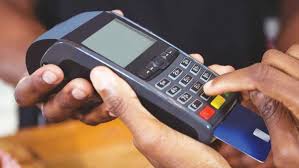CBN Draws the Line: PoS Terminals Must Be Geo-Tagged or Go Dark in 60 Days
CBN Draws the Line: PoS Terminals Must Be Geo-Tagged or Go Dark in 60 Days
The Central Bank of Nigeria (CBN) has fired a major shot across the bow of Nigeria’s fast-growing Point of Sale (PoS) industry, ordering operators to geo-tag every active terminal within 60 days or risk immediate shutdown.
In a circular issued on August 25, 2025, the apex bank directed all licensed operators — including fintech giants Moniepoint, OPay, PalmPay, and traditional banks — to ensure that every one of the country’s estimated 4.2 million PoS terminals is digitally tethered to its exact physical location.
The New Rulebook
The directive, which takes effect from October 20, 2025, demands that PoS terminals be updated with GPS functionality and linked to the National Central Switch through a specially designed software development kit (SDK). This will allow the regulator to monitor transactions and locations in real time.
Merchants and agents will be restricted to processing transactions within a 10-metre radius of their registered business address. Any device found operating outside its assigned location will be automatically shut down.
According to the CBN, the move is aimed at curbing a wave of fraud linked to cloned, stolen, and “ghost” terminals that have become common in Nigeria’s payments ecosystem.
A Tightrope for Operators
The new rules place the burden of compliance squarely on Payment Terminal Service Providers (PTSPs) and mobile money operators, who must not only geo-tag new devices before activation but also ensure that millions of existing terminals are upgraded within the two-month deadline.
Failure to comply, the circular warns, means such terminals will be barred from operating on Nigeria’s payment rails.
Industry insiders say the 60-day timeframe will stretch operators to their limits. Nigeria had about 1.5 million PoS agents as of 2023, translating to one agent for every 80 people. Recent figures also suggest that 1,600 PoS operators are crammed into every square kilometre of urban Nigeria — a density that has made PoS one of the fastest-growing retail financial services in Africa.
Why Now?
For the CBN, the directive is part of a wider crackdown on fraud and weak oversight in the fintech sector. Last year, the apex bank mandated that all PoS transactions be routed through licensed Payment Terminal Service Aggregators (PTSA) for better tracking. Operators were also required to register devices with the Corporate Affairs Commission (CAC) to ensure accountability.
But despite these measures, reports of scams, duplicate terminals, and unauthorised deployments have persisted, prompting the CBN to take what it calls a “geo-anchored” approach to transaction monitoring.
The Stakes
With over ₦10 trillion worth of transactions processed monthly through PoS, the sector has become a lifeline for cashless payments, especially in rural and semi-urban communities. The CBN’s move is therefore a high-stakes gamble: while it could dramatically reduce fraud, it may also disrupt service for millions of Nigerians if operators fail to meet the compliance deadline.
For now, the message from the regulator is clear: tag your PoS or lose it.
By Haruna Yakubu Haruna

















